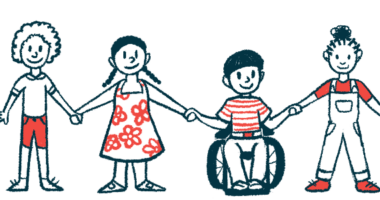Helping Austen to Understand the Finality of Death

This past week our family suffered a tragic loss. Our rabbit, Susie Stew, whom we had adopted roughly 15 months earlier, passed away in her sleep.
Between the time our neighbors had her (at least the entire three years we lived next to them) and the time we had her, she was at least 4.5 years old, which is average for a rabbit. But it was still devastating for our family — especially for my 6-year-old daughter, Austen, who has Dravet syndrome and is on the autism spectrum.
This was not the first time Austen had experienced death, but it was the first time she understood it to any extent, and it broke her mama’s heart. Last year when my grandfather passed away, she didn’t understand, and we didn’t have a concrete moment to say goodbye since we couldn’t have a funeral during the COVID-19 pandemic. Looking back, I’m almost grateful for this, because I feel it protected all my kids from an extra layer of pain.
Austen loved Susie; we all did. She was easily the cuddliest member of our family and held her own in a house with three kids, three cats, and a dog. She went with us to Texas two years in a row and melted the hearts of our extended family as well.
The morning we discovered that Susie had passed away, Austen didn’t quite understand what I was telling her. I think she thought that since Susie was still in her cage, all was well. I tried to explain it to her, but it didn’t seem to click.
It wasn’t until my brother came over to help me bury Susie, and Austen insisted on watching us put her in the ground, that it clicked. Austen repeated over and over that she didn’t want Susie to be in heaven with Jesus; she wanted her on earth with us.
Uncle Bud, my brother, was able to cheer up my older two children, but Austen wasn’t swayed at all. Even love from our other animals didn’t help.
It’s hard enough to explain death to a neurotypical child, but nothing could have prepared me for explaining it to Austen. Over a week later, Austen is still asking me to “dig Susie up.” She thinks burying Susie made her go to heaven, and can’t seem to grasp that we had to bury her because she passed away. It’s become one of her obsessions, and we are trying our best to curb it.
She will do well for a day or two, then suddenly remember Susie is gone and cry all over again. Every time, my heart breaks into pieces because I just want to make it better.
On the contrary, Atlas, my neurotypical 7-year-old, has taken Susie’s death a lot better. This is also his first real experience with death. While he cried at first, he understands that Susie isn’t coming back. He still talks about her and says that he misses her, but he has a more concrete understanding of the situation than Austen.
I don’t know if Austen will ever forget Susie, but I do know the pain will eventually get better. We are keeping her memory alive by printing pictures of her to frame, at the kids’ request. And just as when my grandfather passed away last year, we talk about her and how much we loved her.
I know this seems like a lot to do for the passing of a pet. But in our family, pets are family. I’m not sure when, or if, Austen will ever fully grasp the situation. But I do know I will help her through it as best I can.
***
Note: Dravet Syndrome News is strictly a news and information website about the disease. It does not provide medical advice, diagnosis, or treatment. This content is not intended to be a substitute for professional medical advice, diagnosis, or treatment. Always seek the advice of your physician or other qualified health provider with any questions you may have regarding a medical condition. Never disregard professional medical advice or delay in seeking it because of something you have read on this website. The opinions expressed in this column are not those of Dravet Syndrome News or its parent company, Bionews, and are intended to spark discussion about issues pertaining to Dravet syndrome.







Leave a comment
Fill in the required fields to post. Your email address will not be published.